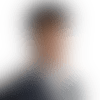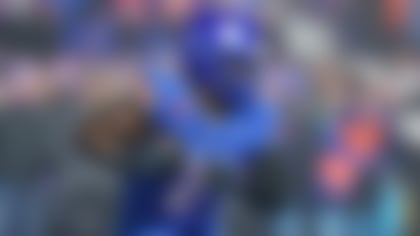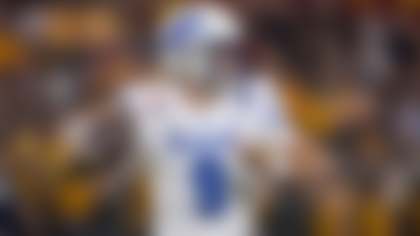With the 2021 NFL Draft just around the corner (April 29-May 1), NFL Network analyst and former All-Pro running back Maurice Jones-Drew eyes the RB class, ranking this year's top 30 prospects at the position -- plus four fullbacks -- factoring in what he's seen on film and at pro days.
Day 1 starters
After being cleared in his medical checkup last week, Harris continues to stake his claim as the cream of the RB crop. The explosive back is coming off an impressive 2020 campaign in which he neared 300 touches in 13 games, capped by a three-TD performance in the national championship. Harris has short-area quickness, durability and elusiveness despite his big frame (6-foot-1, 235 pounds). I see Harris as a three-down back out of the gate, as he's a terrific route-runner. The one concern is his long speed.
The Clemson back is a home run hitter, but that's not all. He has excellent vision, contact balance and patience as a runner, while also being a capable pass catcher out of the backfield. Etienne can play in any system, but in the right system, he could be all-world much like Clinton Portis was right out of the gate in Denver.
Some have his UNC teammate ranked above him, but there are several reasons why I disagree. Carter not only has a physical nature to his running style and can reach full speed in two steps -- he has good hands and thrives in space. Plus, he's the past pass-blocking back in this draft class.
Williams has great acceleration and runs behind his pads as a strong, physical back. And though he's a natural pass catcher with good speed, he's only played running back for a few years after transitioning from linebacker as a senior in high school. Because of his defensive roots, he tends to take a lot of hits square on and is still learning to avoid those taxing tackles as he matures as a running back.
System players
Patterson (5-7, 185 pounds) is a very durable back who averaged almost 24 carries per game in an abbreviated 2020 FBS season. His knack for the end zone (52 TDs in 26 career games) is a credit to his ability to feel the offensive line, find holes and burst through. Buffalo's competition level may raise concerns -- and will likely be why he isn't drafted early -- but his game translates to any system.
The 5-10, 206-pounder has great vision, uses his blocks well and accelerates through the hole. Jefferson has been productive ever since he got to Oregon State, and playing in the Beavers' pro style system gives him a small learning curve at the next level.
Hubbard possesses Olympic speed as a downhill runner, but also thrives in an outside-zone scheme as an explosive playmaker. He has great stop-start ability, catches the ball well and is a potent weapon in the screen game.
He's a slippery, quick playmaker with phenomenal receiving ability. He'll be a contributor out of the backfield, on fly sweeps and aligned as a receiver (because he routinely adjusts to the throw). Like another former Memphis product in Antonio Gibson, Gainwell will comfortably slide right into these new NFL offenses.
He's extremely fast and creative with the ball in his hands: stopping, starting or reversing field, but rarely getting tackled for a loss. He can catch the ball well then immediately put his foot in the ground and get downfield. There's promise for this shifty playmaker in the right system.
Mitchell is one of the sleepers in this class. Part of a solid 1-2 punch for the Ragin' Cajuns, he's a strong, fast runner with his best asset being his vision. He knows where he's going before he gets the ball, which is a big positive and is what might separate him from other RB prospects.
The Kansas product is a good all-around running back. He's explosive and has short-area quickness and really good speed. There's upside here, for sure. The only knock on him is his 5-9, 175-pound frame.
Sermon struggled with injuries over his college career, including a shoulder issue that sidelined him after just one carry in the national championship game. Prior to that setback, he had a strong end of the season, but that was kind of it. I'd like to see more consistent production from Sermon. That said, he has a versatile skill set as a strong runner and natural pass catcher.
Evans is another guy who's coming from a pro-style offense, so the learning curve won't be steep at the next level. He has good acceleration and is elusive with the ball in his hands. As a pass catcher, Evans is a solid route-runner and sets up his blockers well in the screen game.
Funk's skill set is comparable to Christian McCaffrey's, but the Maryland back is a little stiffer in his movement. He has good speed (4.4-second 40-yard dash), drives his feet on contact and does a nice job shaking defenders in the open field.
Hill has great vision, acceleration and uses his explosiveness to quickly get to the outside. He does a nice job of staying balanced through contact by continuing to drive his legs. The 5-10, 214-pounder will likely start as a change-of-pace back for the team who drafts him.
Ragas is Jordan Howard, but with better hands. He's a strong runner with a nasty stiff arm and he's a load to take down when his shoulders are square. Ragas possesses great jump-cuts, thanks to his quick feet, and as an added bonus, he's a natural catcher of the football.
Marable is another sleeper in this class, and like Memphis' Gainwell, he can play a number of offensive skill positions (running back, receiver, slot). The speedster has great acceleration and adjusts to the ball really well, helping him routinely catch throws with ease.
Jackson has plus size (5-11, 218 pounds), great acceleration and constantly finishes runs with his shoulders forward. He's the type of player you don't hear about in the pre-draft process, but if he lands in the right system, the Duke product could burst onto the NFL scene and enjoy a good pro career.
The 5-11, 218-pound back possesses good acceleration and a good jump-cut. He's a creative runner and sets up blocks well. He struggled with turnovers last season, something he'll have to improve at the next level if he wants to maximize opportunities.
The former Hoosier has a feel for his blockers and gets to top speed quickly through the hole. His running style lacks creativity, but he could be an asset as a natural pass catcher.
Need time to develop
Stevenson (6-0, 231 pounds) is a big back with short-area quickness. He reminds me of Brandon Jacobs in the way that he doesn't lower his pads much. Rather, he's looking to score and get as much yardage as possible on each carry.
Boyd is a home run hitter and hits the hole with speed and acceleration. The tape displayed big run after big run, but they were all straight ahead. To put it simply: Boyd excels when the play is blocked cleanly, but needs to be able to create more when it's not.
A 2020 opt-out, Hardy is a shifty back who shows patience, good vision and contact balance. He's tough to bring down in the open field, but his long speed and level of competition are concerning. Against "lesser" foes, his numbers weren't off the charts.
Marshall's Knox runs behind his pads and sets up his blocks well. He's a natural ball-carrier with good quickness and solid jump-cut ability.
Nwangwu is a solid back with good leg drive on contact, vision and speed. He just doesn't have a lot of juice.
The UAB prospect has good vision and acceleration while using his blocks well. He needs to be more creative once the ball is in his hands to make more big plays.
Herbert is quick and has an arsenal of open-field moves to make defenders miss, but he lacks some of the natural talent others have.
At 5-8, 220 pounds, Henderson is a compact runner who has great footwork and doesn't get tripped up at the line of scrimmage. He has good assets, but lacks real quickness and juice.
The 5-11, 211-pounder is a physical runner with good balance. He uses his blockers well in the run game, but isn't much of a pass-catching option.
Johnson has good strike in pass protection and possesses good burst and acceleration as a runner, but lacks high-end production.
Fullbacks
Mason is an old-school fullback who initiates contact while continuing to drive his legs. He could benefit an NFL team in short-yardage and goal-line situations.
Stokke has good lean and a low pad level. He does a good job of using his shoulders when striking and is an excellent puller along the offensive line to lead the running back.
Carter is a solid player with good hands and routinely gains yards after contact. He could help immediately on special teams.
Raine is a wing back who excels in the passing game when running to the flat -- much like Zach Miller was used in Chicago. The Northwestern product is an athletic puller on blocks and a better blocker against smaller defenders.
Follow Maurice Jones-Drew on Twitter.














































